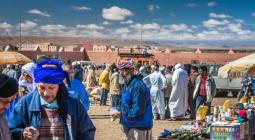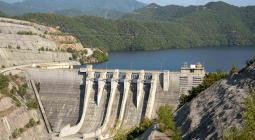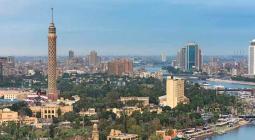Financing development: what can the EBRD bring to Senegal and Ghana?
The European Bank for Reconstruction and Development (EBRD) has approved Senegal and Ghana's application for membership. This approval is part of the Bank's strategy of "gradual" expansion in the countries of sub-Saharan Africa.
The Board of Governors of the European Bank for Reconstruction and Development (EBRD) approves new membership applications. Among the new members of the London-based bank are Senegal and Ghana, two West African countries with very different political, economic and social contexts.
Although Senegal is going through a period of political turbulence following the highly contested postponement of the presidential election initially scheduled for February 2024, the country’s gross domestic product (GDP) is expected to grow by 10% in 2024, according to forecasts by the International Monetary Fund (IMF) and the World Bank. This growth will be boosted by the start of oil production in a country with a population of just over 18 million.
https://twitter.com/EBRD/status/1763160808232501404
For its part, Ghana has been facing a debt crisis since the summer of 2022, which led the IMF to intervene with a 17th support plan worth $3 billion, approved in May 2023. According to forecasts, GDP is set to fall from 3.3% in 2023 to 2.8% in 2024.
“Prior requirements”
However, the two countries have the same objectives in joining Benin and Ivory Coast in the EBRD. But they will have to wait before they can benefit from the membership they requested in October 2023. This is because “the two countries will have to meet certain prerequisites for membership before the process can be completed”, says the EBRD. With regard to Ghana and Senegal’s request to benefit from financial services, the Bank assures that it will “deal with the matter once the statutory amendments are in force”.
For EBRD President Odile Renaud-Basso, approving the membership of the two West African countries is part of “the historic decision taken by our Governors last year on the future expansion of the Bank’s operations in sub-Saharan Africa”. The bank is already active in North Africa, mainly in Morocco, Tunisia and Egypt. In the land of the pharaohs alone, the EBRD has financed €11 billion through 174 projects since it began operations in 2012.
A strategy focused on the private sector
In Senegal and Ghana, “our aim will be to help unleash the potential of the private sector in these countries, create jobs and support sustainable development”, adds the President of the EBRD. In other African countries, the EBRD is supporting the public-private partnerships (PPPs) that have boosted the renewable energy sector in Egypt. The EBRD is one of the financial partners of the Benban solar complex (1,650 MWp), a mosaic of solar farms in the Egyptian governorate of Aswan.
More recently, the bank participated in the financial closing of a 500 MW wind farm currently under construction in the Gulf of Suez by French energy company Engie, in partnership with Egyptian flagship Orascom Construction, as well as Japanese investors Toyota Tsusho Corporation and Eurus Energy Holdings Corporation. In addition to energy, Senegal and Ghana want to meet the challenges of water and sanitation, urban mobility, food security, education, health, etc.
Cover photo: By AFRIK21





